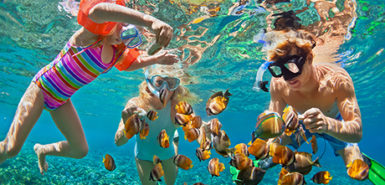
You know that sign at the entryway of your local pool that asks you to shower before entering the water? Do it.
And then make sure to shower again after you are done swimming for the day. You may be saving yourself and other swimmers a miserable summertime bout of diarrhea.
Numerous news outlets have published stories about a U.S. Centers for Disease Control and Prevention report revealing an increase in the number of pool swimmers impacted by chlorine-resistant pathogen cryptosporidium, a parasite that can cause intestinal disorders, such as diarrhea.
According to the CDC, although both E. coli and norovirus are eliminated by chlorine and other chemicals used in pools. Cryptosporidium, however, survives for up to 10 days.
People who have or who recently had diarrhea can carry the parasite into the pool, exposing other swimmers. They, in turn, develop diarrhea a few days later.
So is the answer to stay out of swimming pools and head for one of Michigan’s beautiful lakes?
Not necessarily, said George Fogg, MD, PhD, an infectious disease specialist with Spectrum Health Helen DeVos Children’s Hospital.
“This parasite has always been around in our pools. It only receives attention when there is an outbreak of cases in a water park or in a community,” Dr. Fogg explained. “The two most common parasites that can cause diarrhea are giardia and cryptosporidium and they have been around for a long time.”
Dr. Fogg said that swimmers developing diarrhea after being in a pool is still “very uncommon. You have a greater risk of getting norovirus on a cruise ship than getting cryptosporidium in a swimming pool—it is very rare.”
He recommends that swimmers who do experience diarrhea inform their health provider, although they will likely see the condition “self-correct” within a few days.
While there isn’t currently a chemical that is both safe to use in a pool and that would kill the parasite, Dr. Fogg said that taking normal precautions will help swimmers stay healthy.
- Avoid ingesting any pool water. “That is how it gets into your system.”
- Shower before and after swimming. “Soap can remove the spores from your skin and prevent you from inadvertently ingesting them through touch.”
- Stay out of the pool if you have a compromised immune system. “That is who we really worry about—people who have other health conditions who are particularly vulnerable to parasites.”
All in all, Dr. Fogg said not to let unnecessary worry about what’s in the water curtail your traditional summer activities.
“Enjoy the summer and have fun,” he said.
 /a>
/a>
 /a>
/a>
 /a>
/a>